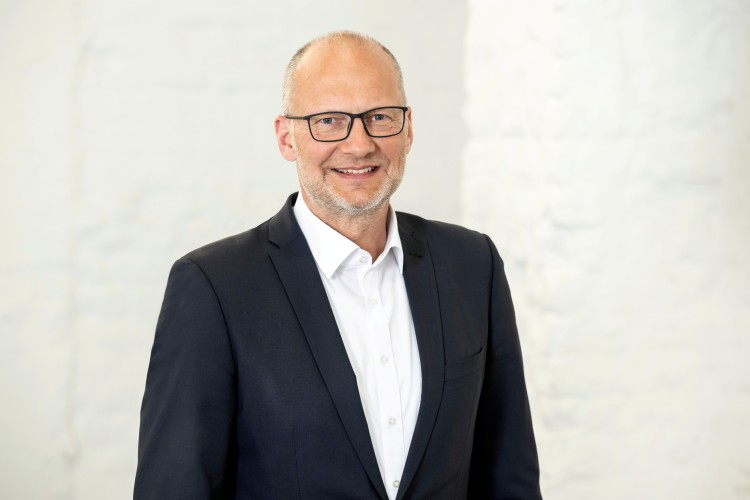Successful next step in the Excellence Strategy
Successful next step in the Excellence Strategy TU Darmstadt has the chance of establishing three Clusters of Excellence
2024/02/02 by Claudia Staub
Huge success for the Technical University of Darmstadt: In the prestigious Excellence Strategy from the German federal and state governments, TU Darmstadt has reached an important milestone. It has been selected and invited to prepare full applications for the outline proposals “Reasonable Artificial Intelligence” (RAI), “The Adaptive Mind” (TAM) and “CoM2Life” in fields of artificial intelligence, cognitive science and biomaterials and submit them for funding as part of the Cluster of Excellence funding line. The selections were made by an international panel of experts. A total of 143 outline proposals were submitted to the German Research Foundation (DFG), of which 41 have now been invited to submit full applications for the second round of the Excellence Strategy funding programme.

“I would like to warmly congratulate my colleagues in RAI, TAM and CoM2Life for achieving this important milestone on the path towards establishing a Cluster of Excellence,” says TU President Professor Tanja Brühl. “Thank you for your outstanding commitment and dedication when preparing the outline proposal and during the assessment process. I would also like to express my thanks to the many colleagues at TU Darmstadt and our partners who were involved in the process in a supporting capacity. The selection of three outline proposals in the extremely competitive Excellence Strategy is a fantastic success for TU Darmstadt and above all a team success. We will now work tirelessly together to prepare the full application so that we are also successful in the next stage of the process and can ultimately establish Clusters of Excellence.”
Professor Dr. Tanja Brühl,
President of TU Darmstadt
I would like to warmly congratulate my colleagues in RAI, TAM and CoM2Life for achieving this important milestone on the path towards establishing a Cluster of Excellence.

“The invitation to submit full applications for three outline proposals is a fantastic success for TU Darmstadt and recognition of the strength of our research across various research fields,” says Professor Matthias Oechsner, Vice President for Research. “This achievement demonstrates that active collaboration and close networking are key to our success. We are committed to collaborating and networking with our scientific partners – at other universities and also non-university institutions. We are convinced that interdisciplinary research into scientific questions will deliver real added value and that this broad range of perspectives will produce innovative solutions. These successful projects will also strengthen Hesse as a hotspot for science. Therefore, we would also like to thank the Hesse state government for their support within the “cluster project” funding line.”
Professor Dr. Matthias Oechsner,
Vice President of TU Darmstadt for Research
The invitation to submit full applications for three outline proposals is a fantastic success for TU Darmstadt and recognition of the strength of our research across various research fields.

The president expressed her disappointment that the other two outline proposals that were submitted in the fields of energy transition and nuclear physics were not selected for the full application stage.
“Regrettably, our other projects were not as successful in this competitive process,” says Brühl. “At the same time, I am certain that the pioneering and innovative ideas that we plan to develop in our projects will receive appropriate recognition in other funding formats.”
Highly competitive selection procedure
The Excellence Strategy is a funding programme of the German federal and state governments to strengthen cutting-edge research in Germany. Projects must overcome a highly competitive, multi-stage selection procedure in order to receive funding. TU Darmstadt has now been invited to submit full applications to establish Clusters of Excellence for the projects “Reasonable Artificial Intelligence” (RAI), “The Adaptive Mind” (TAM) and CoM2Life in the next stage of the process. The project CoM2Life is being carried out jointly with Johannes Gutenberg University Mainz. The decisions on which projects can establish new Clusters of Excellence and which existing clusters that were set up during the first round of proposals will receive continued funding will be made in May 2025. Funding can be provided to a total of up to 70 Clusters of Excellence and the German federal and state governments provide total funding of 539 million euros per year for this purpose.
Von der Entscheidung profitieren auch die Wissenschaftsregion Rhein-Main sowie die Rhein-Main-Universitäten (RMU), die Allianz aus TU Darmstadt, Goethe-Universität Frankfurt und Johannes Gutenberg-Universität Mainz.
About the excellence strategy of the federal and state governments
To further strengthen the international competitiveness of research at German universities, the federal and state governments have established the Excellence Strategy as a funding programme. The key objective of the Excellence Strategy is to strengthen top-level research in areas that are internationally competitive, to institutionally strengthen German universities, and to advance the development of the German higher education system.
To this end, the Excellence Strategy comprises two separate but intertwined funding lines. The “Clusters of Excellence” funding line, coordinated by the German Research Foundation (Deutsche Forschungsgemeinschaft – DFG) provides project-based funding for internationally competitive research areas at German universities. The “Universities of Excellence” funding line, coordinated by the German Science and Humanities Council (Wissenschaftsrat – WR), is designed to fund institutional strategies that promise to strengthen universities as a whole and create outstanding framework conditions for excellent research.






